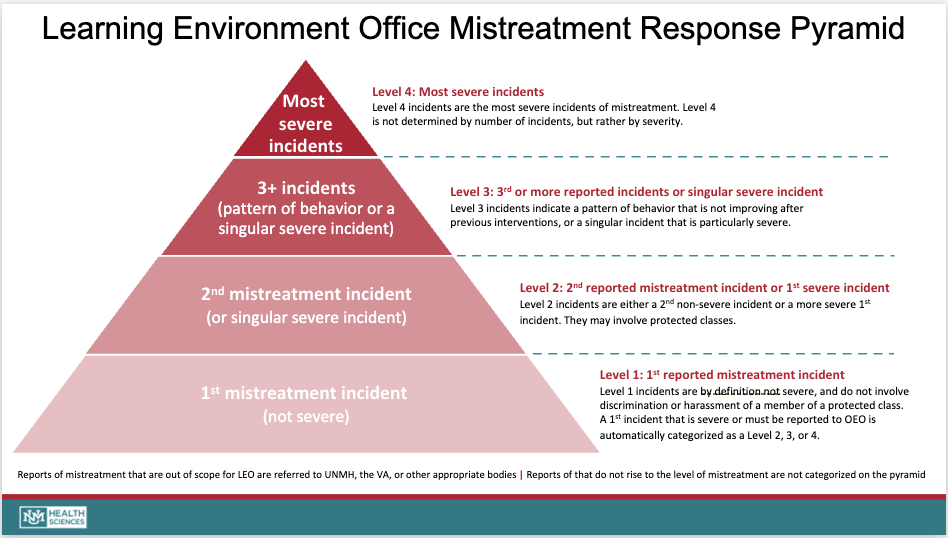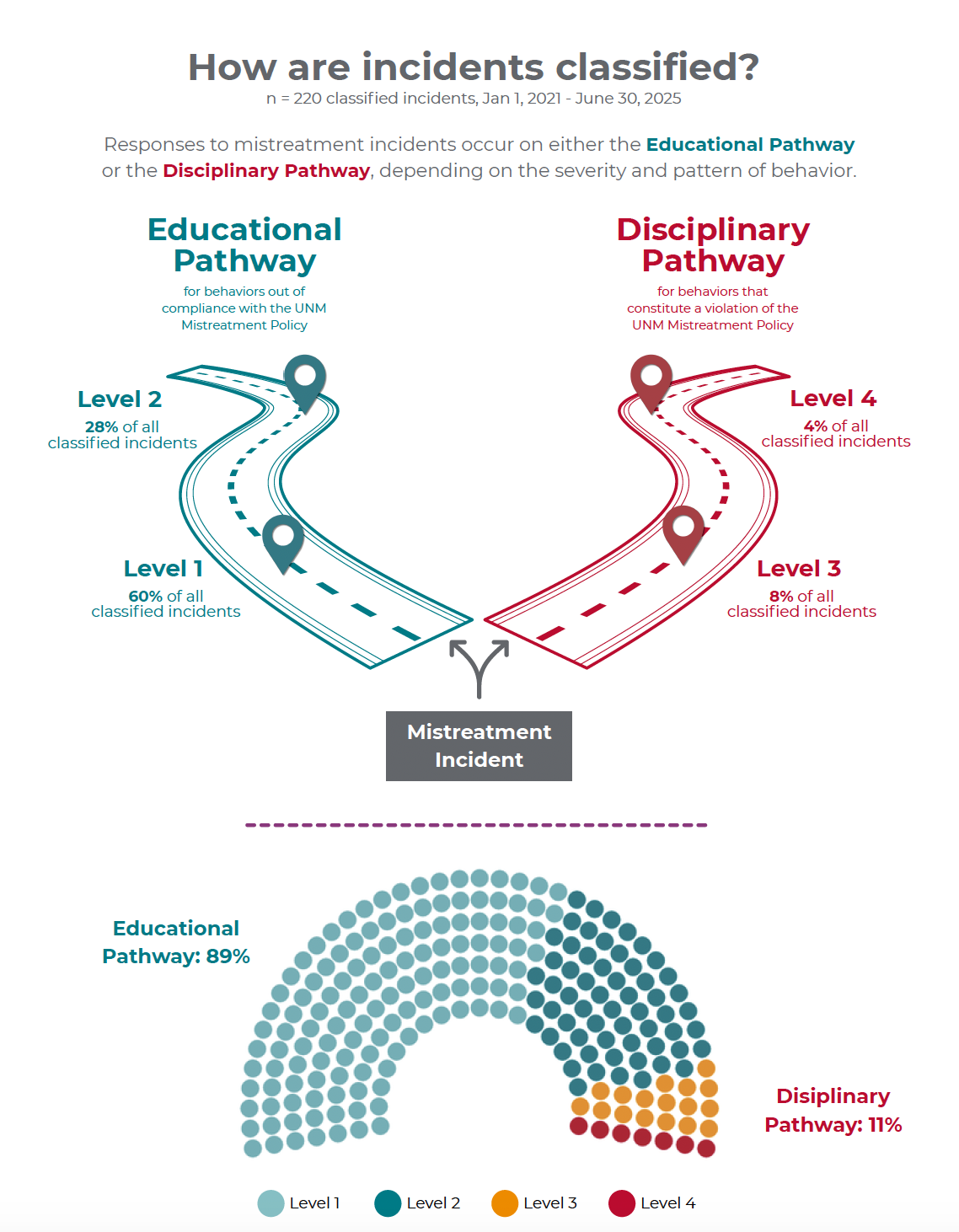If you are unsure whether a behavior rises to the level of mistreatment, you are encouraged to contact the Learning Environment Office for a confidential discussion.
 505.272.7867
505.272.7867

To learn more about how we handle mistreatment cases and learn about what does and does not constitute mistreatment, check out each section below.
University policy is that no person shall be subject to retaliation for using or participating in a complaint process. State and federal laws and University policy protect against retaliation for reporting mistreatment, harassment, and/or discrimination. University policy further prohibits retaliation against a person for filing a complaint, participating in the investigation of a complaint' or assisting others who raised a complaint.
Click here to read UNM School of Medicine's Learner Mistreatment Policy document [PDF]
When the Learning Environment Office (LEO) receives a report of mistreatment, the first step we take is to set up a meeting with the person reported to have been mistreated to discuss the report. You may have reported the mistreatment yourself, or someone else may have reported it on your behalf. Either way, LEO would like to meet with you to discuss the incident, its impacts, and agree upon next steps.
If the report details discrimination and/or harassment based on a protected class, you also have the option to report the behavior to the UNM Office of Compliance, Ethics, and Equal Opportunity (CEEO).
*protected class = those personal traits or characteristics, statuses, and/or beliefs that are defined by applicable law and policy, as protected from discrimination or harassment including age, ancestry, color, ethnicity, gender, gender identity (including gender expression), genetic information, national origin, physical or mental disability, pregnancy, race, religion, serious medical condition, sex, sexual orientation, spousal affiliation, and veteran status.
If the person who was named to have been mistreated wants LEO to move forward with the process, LEO’s fact finding process begins. LEO’s burden of proof is a preponderance of evidence, which asks based on the facts, is it more likely than not that the behavior occurred as described. Evidence can be in the form of witness accounts, records, documentary evidence such as screenshots, emails, evaluations, etc.
LEO has adapted Stanford’s Mistreatment Pyramid to classify substantiated incidents of mistreatment based on perverseness and/or severity. LEO’s goal is to respond at the most appropriate level possible following the Educational or Disciplinary Pathways.
Mistreatment incidents that rise to level 3 or 4 on LEO’s Disciplinary Pathway are sent to the Mistreatment Response Committee, a small committee comprised of senior leaders, for review of LEO’s investigation and recommendation of action. When severe or egregious issues take place even as a first violation, they may be escalated to a higher level.
When no mistreatment is identified, learner coaching takes place.


Mistreatment is behavior that shows disrespect for the dignity of another person AND interferes with their learning process. This means that receiving critical feedback is not mistreatment, but being told that you’re stupid and useless during a feedback session is mistreatment. Mistreatment can look like: verbal abuse; public humiliation; discrimination; offensive comments based on gender, sex, race, ethnicity, disability, religion, sexual orientation, etc; neglect or being left out of educational opportunities; and more. If you’re not sure if the behavior you’ve experienced or witnessed is mistreatment, please reach out to us! We’re happy to talk with you about it.
LEO will make two determinations:
(A) Can LEO substantiate that this incident happened (more likely than not)
-AND-
(B) Was this mistreatment?
For more information on what a Level 1 or Level 2 mistreatment incident means for you, click the follow links to download our Fact Sheets.
Remember that all actions, including feedback, improvement plans, or any disciplinary actions come from your supervisor, not from LEO. LEO is responsible for collecting and substantiating reports, managing data and tracking trends, and ensuring that response is consistent across the entire SOM. LEO has no authority or power to take action, which is the responsibility of supervisors. Thus, it is them, never LEO, who will provide feedback, establish improvement plans, engage disciplinary pathways, or any other responses to substantiated incidents.
Phone
505.272.7867
Physical Address
School of Medicine Building No. 2
Room 107
Mailing Address
MSC08 4690
918 Camino de Salud
Albuquerque, NM 87131